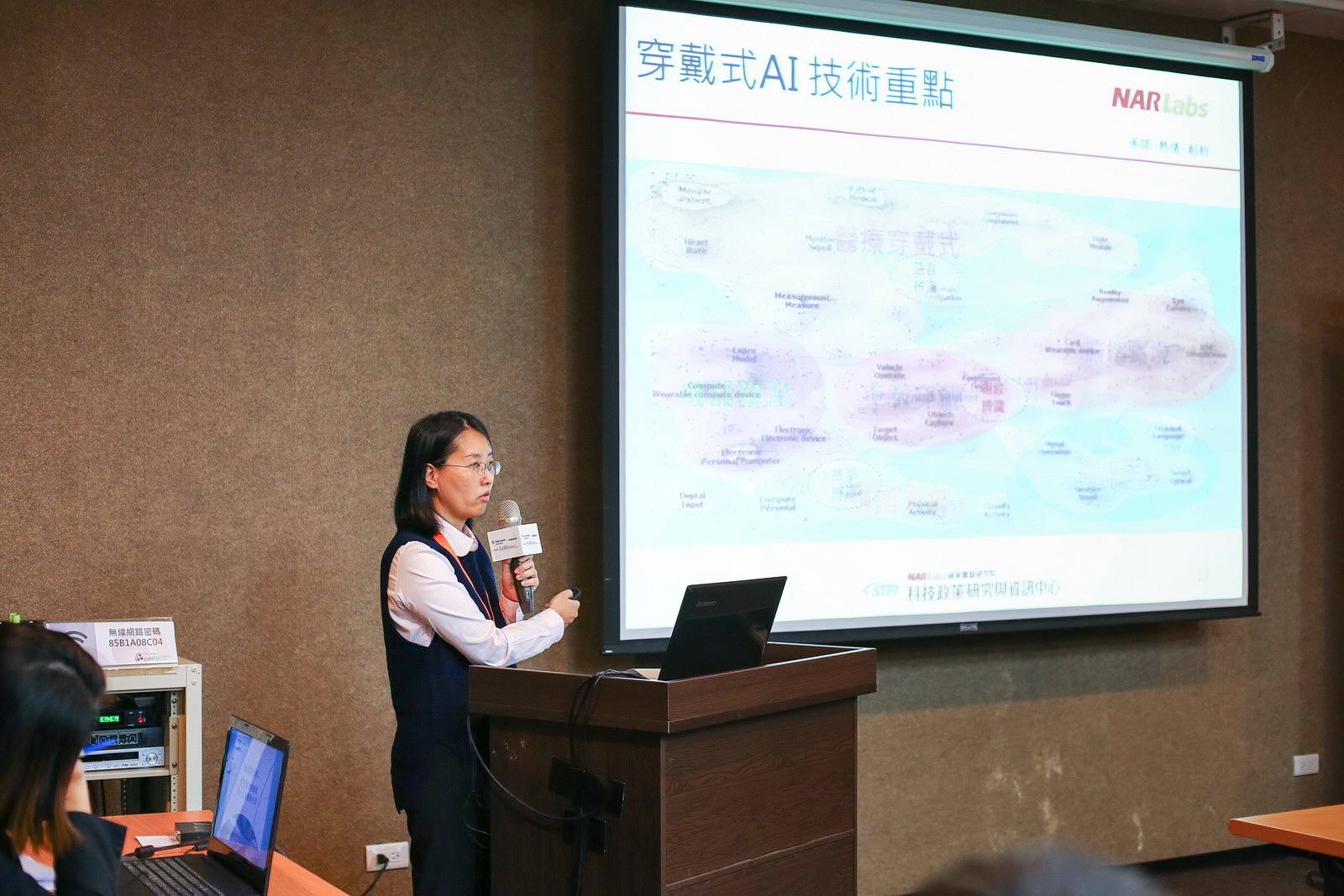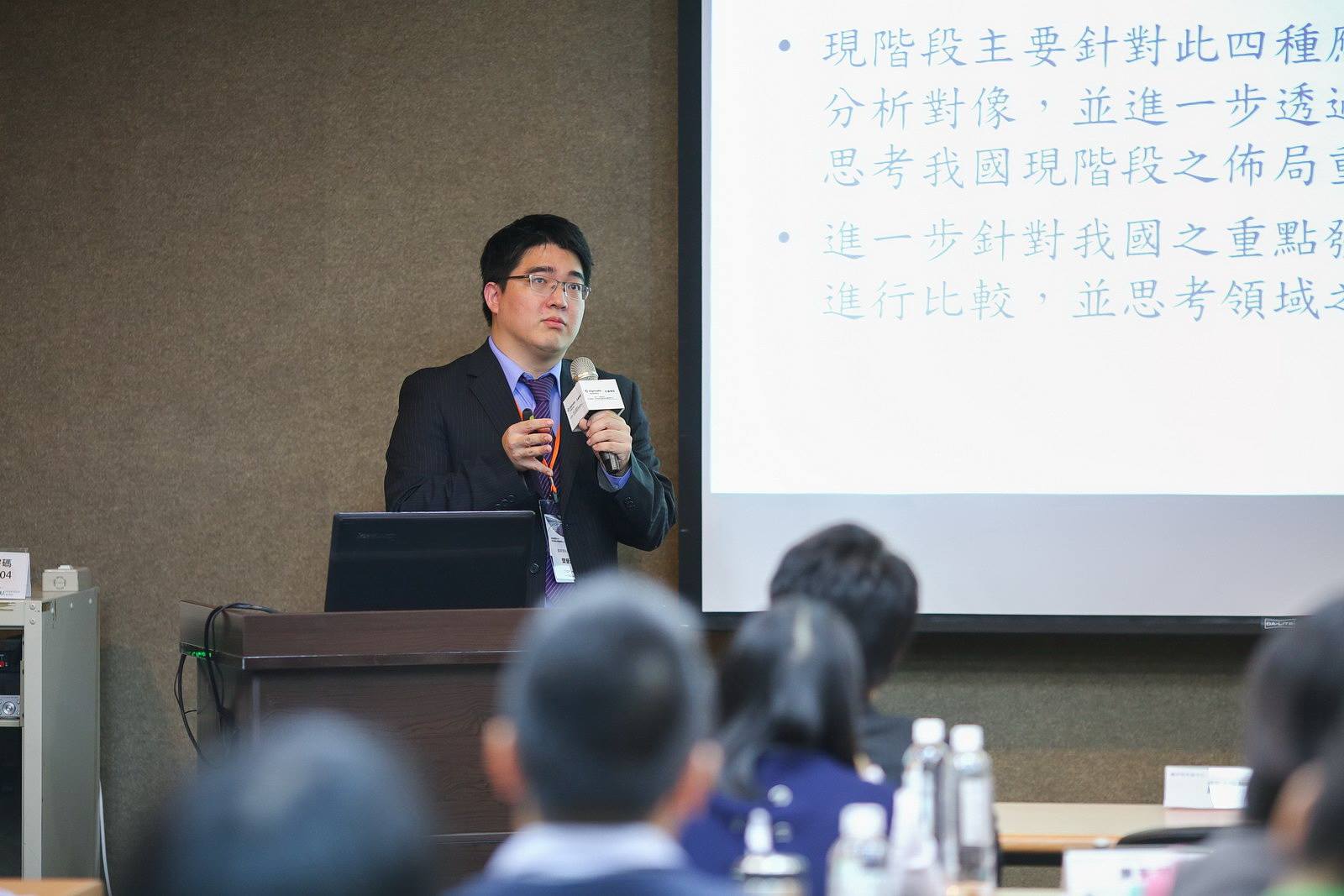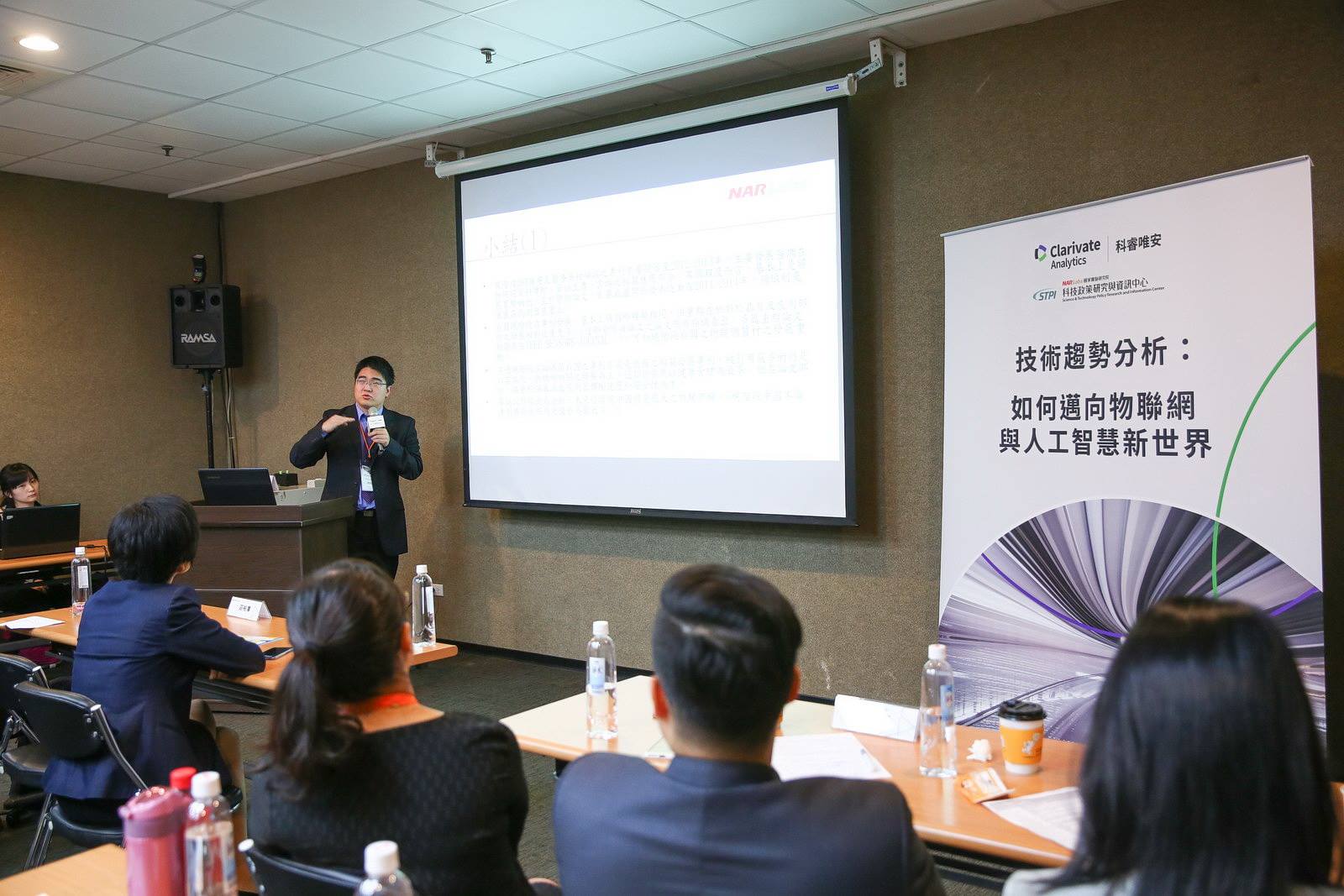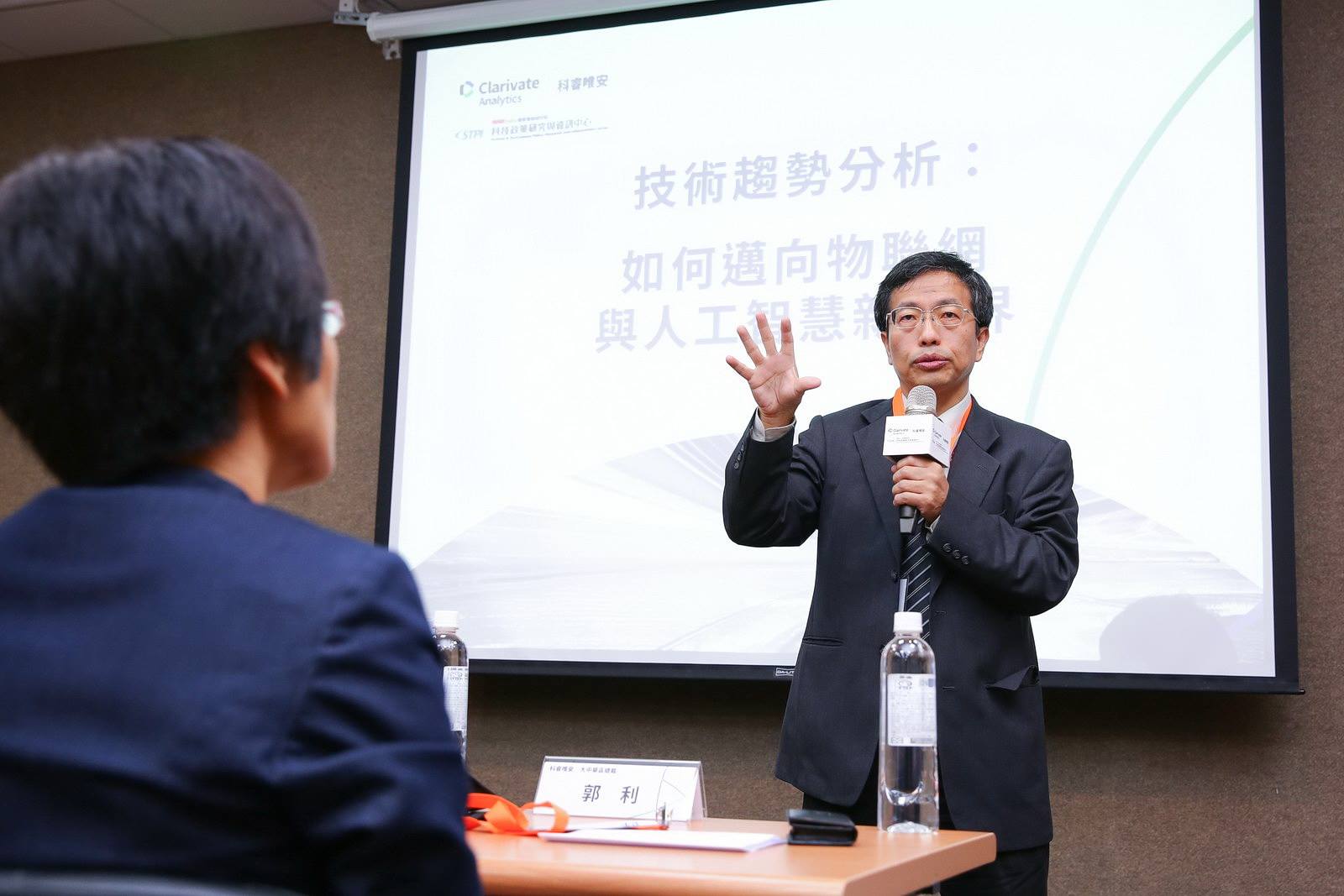|
The Seminar on Technology Trend Analyses: How to Create a New World by Using IoT and AI was cohosted by the STPI and Clarivate Analytics in Taipei in November. It combined patented data and academic literature for technology trend analysis of the application of AI in the IoT, wearable devices, medical equipment, and the pharmaceutical industry. |
|
|
|
The seminar began with an opening speech from Joung Yuh-Jzer, the Director General of the STPI, who announced that Taiwan planned to invest NT$16 billion in the AI industry. As a foundation under the jurisdiction of the Ministry of Science and Technology (MOST), the STPI assists the MOST in promoting related policies. In the seminar, a series of analyses were performed to effectively explore AI technologies and AI-related development frameworks. The four most popular topics were integrated to provide the MOST and relevant departments with sufficient information, on the basis of which appropriate decisions can be made. Therefore, the future of AI in Taiwan looks promising. |
|
|
| Opening remarks by Joung Yuh-Jzer, the Director General of the STPI |
|
Chiu Ming Chun, a Clarivate Analytics consultant, offered a presentation on IoT-related technologies. By examining the value-added patent database of Derwent Innovation, Chiu found that most patented AI technologies on the market are concentrated on natural language, image processing, neural networks, machine learning, and robots. At present, major companies including IBM, Google, Microsoft, Samsung, Amazon, Apple, Facebook, and China’s Tencent, Alibaba, and Baidu all possess a plethora of patents on speech synthesis, natural language, virtual assistants, neural networks, image processing, and machine learning. Related patent results obtained in the past five years have also demonstrated that companies such as Apple, Facebook, Xiaomi, BOE, Amazon, Huawei, and Toyota have been actively involved in applying for AI patents in recent years. With renowned international and Chinese businesses all applying for AI patents, the future development of this industry merits considerable attention. |
|
Wang Hui-yu and Fan Chin-yuan, assistant researcher and associate researcher respectively of the STPI, gave presentations regarding the application of AI in wearable devices and medical equipment. Wang indicated that AI-based wearable devices are destined to cease simply being adornments with electronic functions, but will serve as crucial tools used in people’s daily activities such as planning work schedules and coordinating between different events. Wearable devices will become the next-generation mobile secretaries and may even replace existing mobile devices. Fan discussed the application of AI in medical equipment, highlighting that despite the medical equipment industry performing favorably both in number of patents and essays (i.e., ranking tenth and seventh in number of patents obtained and essays published worldwide, respectively), current medical equipment developments focus heavily on obtaining medical information and related health information; the use of AI to make patient- or manager-related predictions or perform diagnoses and provide treatments, however, is relatively rare. This weakness must be overcome in the future. |
 |
| Wang Hui-yu, the Assistant Researcher from STPI, indicated AI-based wearable devices will serve as crucial tools used in people’s daily activities in the future |
 |
| Fan Chin-yuan, the Associate Researcher from STPI, discussed the application of AI in medical equipment |
|
Chao Yu-wei, a Clarivate Analytics life science solution consultant, investigated the value-added patent database of Derwent Innovation to analyze the pharmaceutical industry and determined that numerous patents have already been obtained for the health care markets of Canada, Australia, and the United States. Those obtained for Canada and Australia primarily focus on cancers, treatments, and patient samples. Concerning the US health care market, only patents obtained for the processing of patient data outnumbered those for the Canadian and Australian health care markets. Overall, AI is most advantageous for its capability in reducing the time required for reading and sorting research data on targeted drugs from 12 weeks to a few minutes. This suggests that collaboration between AI startup companies and pharmaceutical companies will become more frequent and greater in scope, which will facilitate the quicker introduction of new drugs. |
Related
- Symposium Taiwan-Japan AI Technology and Future Society International Summit Forum
- Symposium STPI Co-hosted the 4th Asian Innovation Forum (AIF) with partner KISTEP
- News MOST and STPI to Singapore and India: A Driving Force for New Southbound Policy
- News FGC-Talk to AI x High School CEECS Clubs Orientation Ushers the Young into the World of AI
- News Cross-Strait Sci-Tech Forum Underscores Mutually Beneficial Cooperation on Livelihood Issues
- News Innovation Week 2019 Builds up Global Network
- News 2019 XFail: To Failure and Beyond
- News World Dignitaries Face Off at Web Summit, the Technology Battlefield
- News TAIDE Chatbot Preliminary Results Announced; Industry, Government, and Academia Gather to Witness
- News Civil IoT Taiwan: Delegation Explores IoT for Smart Cities and Disaster Prevention on Japan Visit
- News STPI Team Heads to the U.S. "AI Expo for National Competitiveness" to Stay Abreast of the Latest Technologies and Promote TAIDE
- News STPI Researchers Joined NSTC-BMBF Joint Workshop on AI in Berlin Germany


